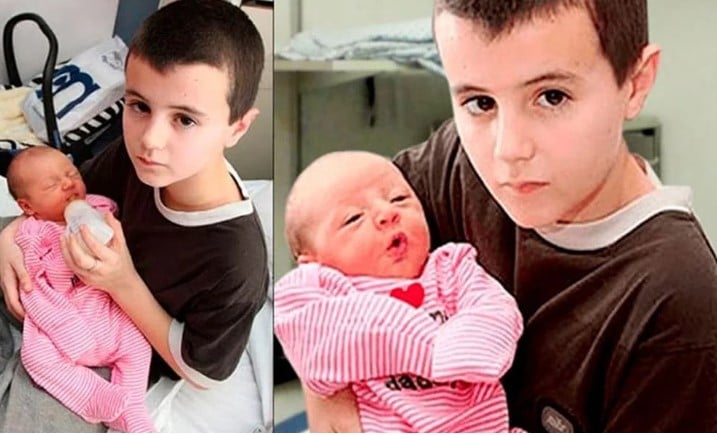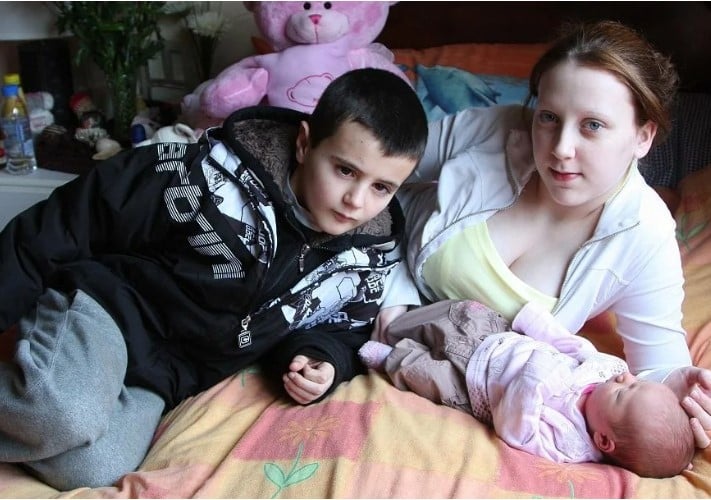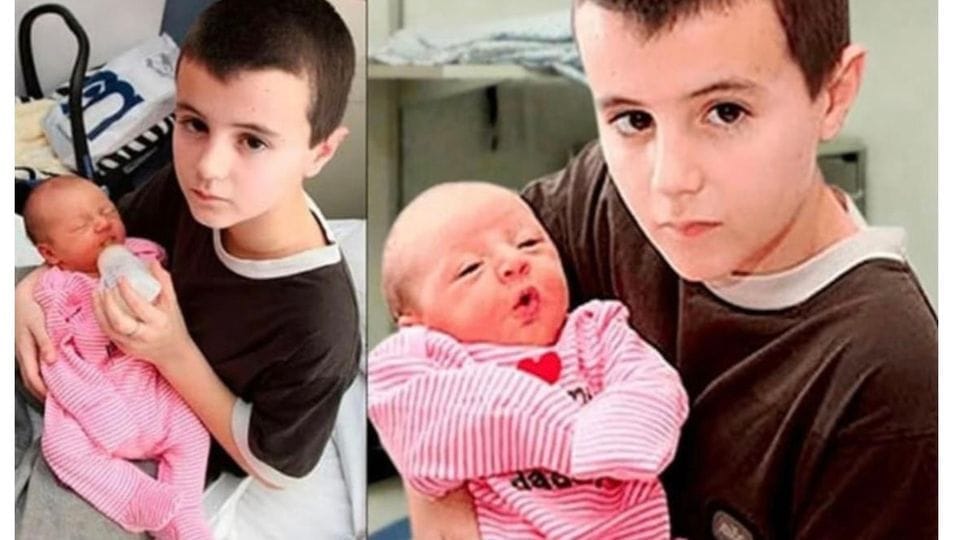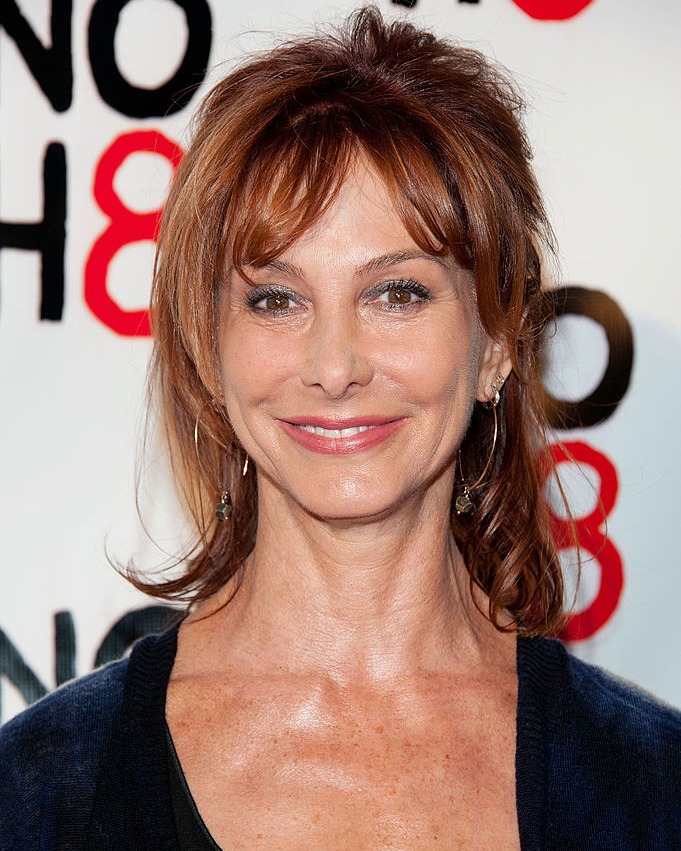HT1. Father at 13. How does he appear now, 12 years later?
The news of a 13-year-old boy and a 15-year-old girl becoming parents took the world by surprise and ignited widespread debate. The shock was not just due to their ages, but also the significant social, emotional, and developmental challenges that young parents face. As we look to the future, we will continue to follow their journey, witnessing how they navigate this major life change and how society responds to their circumstances.
For Chantelle, the 15-year-old girl at the center of this story, the realization that she was pregnant came with physical changes that she could not ignore. However, both she and Alfie, the 13-year-old boy, were initially reluctant to share the news with their parents, understanding the gravity of the situation they were facing. The truth became undeniable when Chantelle’s mother noticed the transformation in her daughter’s body, quickly grasping that something irreversible had taken place.

For Alfie, the news was met with excitement—he was overjoyed at the thought of becoming a father. However, beneath the joy was a deep uncertainty about what the future would hold. The weight of responsibility at such a young age, combined with the pressures of being thrust into the public eye, was daunting.

In stark contrast, Alfie’s parents were devastated by the news. Their reaction was filled with shock and disbelief, not just about the immediate situation, but also about the long-term implications of their son becoming a father at such an early age. Before the child was even born, the young couple’s journey was already being aired on national television, adding even more pressure to an already fragile situation.
Despite the public attention, Alfie exhibited surprising composure, stepping up to care for the infant. However, the intense scrutiny that followed weighed heavily on the young couple. Tensions escalated further when Alfie’s parents demanded a DNA test to confirm the child’s paternity. The results revealed that Alfie was not the biological father, a revelation that sent him into a spiral of emotional turmoil.

As the media continued to hound the young couple, Chantelle and her child eventually left town, seeking peace away from the prying eyes of the public. This decision, though made out of necessity, deepened Alfie’s sense of loss and isolation. Over time, Alfie’s mental health deteriorated, and he descended into a deep depression, finding solace in alcohol as a means of escaping the relentless pressure.
A dozen years later, Chantelle had another child, this time with a different partner. Meanwhile, Alfie’s life had taken a darker turn. He had never truly encountered love, and his reliance on alcohol grew as a way to numb the pain. By now, Alfie had amassed a troubling record of twelve offenses, with an ongoing investigation into his actions, which only added to his sense of hopelessness.
This story raises critical questions about the social acceptability of becoming a parent at such a young age. While society often idealizes the image of the nuclear family, the reality is far more complex when children themselves are thrust into the role of parents. In many cultures, becoming a parent at such an early age is seen as inappropriate or irresponsible, as it places immense emotional, financial, and psychological burdens on young individuals who are still in the process of their own development.
On the other hand, there are voices that argue for more understanding and compassion, especially for those who find themselves in these situations due to factors beyond their control. Young parents often face stigmatization and judgment, but they also demonstrate resilience and adaptability in navigating their new roles. Some may argue that society should offer more support and resources to young parents, rather than focusing solely on whether they should be parents in the first place.
Ultimately, the question of whether it is socially acceptable or inappropriate for young people to become parents is deeply tied to broader societal values, access to education and resources, and the capacity of communities to support young families. There is no one-size-fits-all answer, but what is clear is that these young parents deserve compassion, support, and understanding as they navigate the challenges of raising children while still growing themselves.











Post Comment